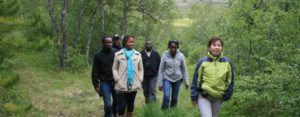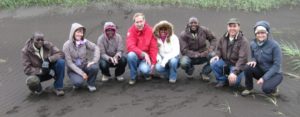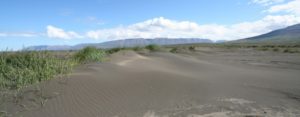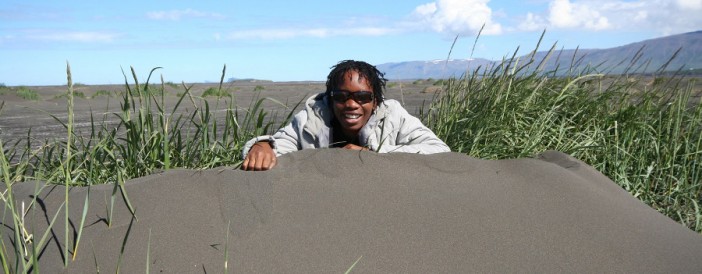The United Nations University Land Restoration Training Programme (UNU-LRT) provides a postgraduate training for specialists from the developing countries in the broad field of restoration of degraded land and sustainable land management, and aims at assisting developing countries in capacity development within this field.
 The programme was founded in 2007 by the Icelandic Ministry for Foreign Affairs (MFA), in partnership with the Agricultural University of Iceland (AUI), and the Soil Conservation Service of Iceland (SCSI) as a part of the government’s development co-operation efforts.
The programme was founded in 2007 by the Icelandic Ministry for Foreign Affairs (MFA), in partnership with the Agricultural University of Iceland (AUI), and the Soil Conservation Service of Iceland (SCSI) as a part of the government’s development co-operation efforts.
An agreement of cooperation between the United Nations University (UNU), the Government of Iceland, SCSI and AUI was signed by all parties in February 2010.
 The main activity of the UNU-LRT programme is an annual six-month training programme in Iceland on land restoration and sustainable land management. The first 12 weeks of the training focus on course work (both introductory courses and specialized training), practical training and field trips. In the latter 12 weeks of the programme, each Fellow works on an individual project which provides specialization with reference to the academic and practical background and needs of the individual Fellow and their workplace.
The main activity of the UNU-LRT programme is an annual six-month training programme in Iceland on land restoration and sustainable land management. The first 12 weeks of the training focus on course work (both introductory courses and specialized training), practical training and field trips. In the latter 12 weeks of the programme, each Fellow works on an individual project which provides specialization with reference to the academic and practical background and needs of the individual Fellow and their workplace.
The UNU-LRT programme is built on the knowledge and expertise gained within Iceland, which faced severe land degradation problems in the beginning of the 20th century. Nationally concerted efforts for over 100 years, aimed at halting soil erosion and restoring lost and degraded woodlands, has created much knowledge and experience which is of great relevance to a number of countries in all parts of the world.
The main activity of the UNU-LRT programme is an annual six-month training programme in Iceland on land restoration and sustainable land management. The first 12 weeks of the training programme focus on course work (both introductory courses and specialized training), practical training and field trips.
 The courses focus on degradation and desertification, land restoration, and sustainable land management. Environmental governance is taught, which includes land management planning and personal skill development.
The courses focus on degradation and desertification, land restoration, and sustainable land management. Environmental governance is taught, which includes land management planning and personal skill development.
In the latter 12 weeks of the programme, each fellow works on an individual project which provides specialization with reference to the academic and practical background and needs of the individual fellow and their workplace.

